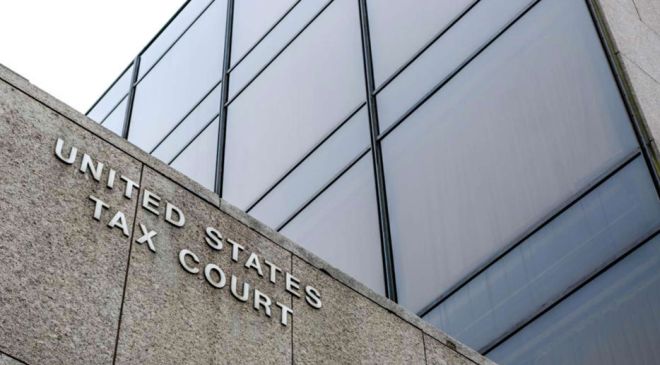Every now and again, a case comes across your desk that makes you say, “Whoa.”
The U.S. Tax Court gave Farhy a win, ruling that the IRS could not collect from him in this instance—the IRS had no statutory authority to assess penalties under section 6038.
Read More:- VP Harris is top White House messenger on abortion fight
Facts
For the tax years 2003 through 2010, Alon Farhy owned 100% of Katumba Capital, Inc., a foreign corporation incorporated in Belize. For the tax years 2005 through 2010, Farhy was the the 100% owner of Morningstar Ventures, Inc., another foreign corporation incorporated in Belize.
For the years at issue, Farhy had a reporting requirement under section 6038(a) to report his ownership interests in both Katumba Capital and Morningstar Ventures. The requirement generally means that taxpayers much file Form 5471, Information Return of U.S. Persons With Respect to Certain Foreign Corporations, to disclose an interest or ownership in a foreign corporation. If a taxpayer does not meet the requirements, section 6038(b) provides for penalties beginning at $10,000 per form per year.
Read More:-
Read More:- Best index funds in April 2023
Farhy did not report—the Court noted that the failure was done “willfully.”
And so, the IRS assessed penalties under section 6038(b)(1) of $10,000 each year. The IRS later assessed continuation penalties under section 6038(b)(2) totaling $50,000 for each year at issue. The continuation penalty is $10,000 for each 30 days the taxpayer doesn’t comply after an initial 90-day notice period, subject to a maximum of $50,000.
When Farhy didn’t pay up, the IRS attempted to levy his assets.
Arguments
Farhy didn’t dispute that he did not file, nor that he had not paid. Instead, he challenged whether the IRS had the legal authority to assess section 6038 penalties.
Also Read- This Growth Stock Could 10x in 10 Years
Another code section is important here—section 6201(a) authorizes and requires the Secretary of Treasury to make assessments of all taxes, including interest, additional amounts, additions to tax, and assessable penalties. The Secretary delegated these duties to the IRS.
Here’s where words matter. The IRS contended that the term “assessable penalties” includes any penalties found in the Code that are not subject to the Code’s deficiency procedures. The IRS also argued that “taxes” in section 6201 is broad enough to include section 6038 penalties. They further claimed that the legislative history supported this position.
The Court disagreed.
It’s important to understand the distinction at play here. When a tax—including an additional amount, addition to tax, assessable penalty, or interest—is assessed, the IRS may take certain actions to collect the tax administratively—that’s clear from the statute. That can include levies, as was attempted here.
Findings
The term “assessable penalties” is key. The Tax Court agreed that “assessable penalties” as used in section 6201(a) is not limited to penalties found in subchapter B of chapter 68 of subtitle F (actually titled “Assessable Penalties”), but that doesn’t mean, the Court said, that it does not automatically apply to all penalties in the Code not subject to deficiency procedures. In other words, “assessable penalties” is not a term used to distinguish between penalties subject to deficiency procedures and those that are not.
Further, the Tax Court found that Congress explicitly authorized assessment for “myriad penalty provisions in the Code” (citing, among other things, penalties under sections 6671-6725 and sections 6651-6751)—but not for section 6038(b) penalties.
Read more:- Inflation Eases, S&P 500 Cools As Banks Kick Off Q1 Earnings Season
The question then wasn’t whether the penalties were included in the statute (they are) but whether the IRS can assess and collect those penalties by administrative means. The Tax Court didn’t buy the IRS’ argument that it has the authority to levy those penalties systematically, nor that the agency didn’t need to take additional steps, such as civil litigation, to collect. “Simply put,” the Court wrote, “while section 6038(b) provides for penalties, it does not provide for assessable penalties.”
The Court further noted it was “loath to disturb this well-established statutory framework by inferring the power to administratively assess and collect the section 6038(b) penalties when Congress did not see fit to grant that power to the Secretary of the Treasury expressly as it did for other penalties in the Code.”
Moving Forward
That means that, while the government may be able to collect liabilities for these penalties through a civil action under section 2461(a), the IRS may not assess or administratively collect these penalties. It’s important, as the Court made clear, that the holding here concerns only the applicable manner of collection for section 6038(b) penalties.
Read More:-Taxpayers Have ‘Lack of Urgency’ To File by April 18 — Is an Extension Right for You?
This doesn’t mean that taxpayers do not have an obligation to file Form 5471—or any other form. Again, this case is focused on procedure and collections.
Farhy may have won in Tax Court, but the matter isn’t fully resolved for other taxpayers. It’s unclear whether the IRS will appeal (I would expect them to) and, if so, how long that might take. It’s also not certain how this ruling could impact taxpayers otherwise subject to section 6038. We’ll likely see this—or related issues—back in Court soon.





























